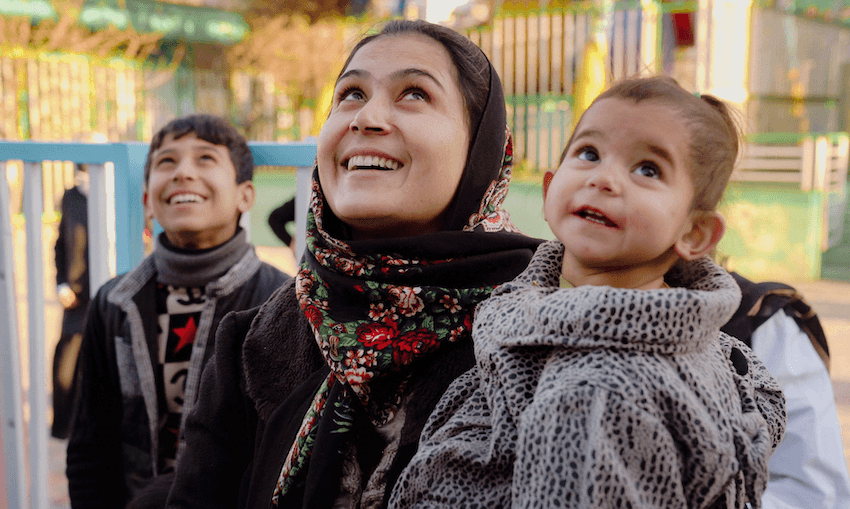Alex Casey talks to Bariz Shah and Saba Afrasyabi, the couple who launched a project to change 51 lives in honour of those lost in the Christchurch mosque attacks.
When Bariz Shah and Saba Afrasyabi walked into Naeem’s house in Jalalabad, Afghanistan, they knew immediately that he needed their help. Down a back alley, the young man shared a room containing everything – kitchen, living, bedroom – with his sick father. “The look on Naeem’s face when we were speaking to him will stay with me” says Shah. “He was just so broken and vulnerable, but he desperately needed support.”
After helping him to purchase a karachi, a cart used to sell goods at the market, for around $400 NZD, Shah and Afrasyabi returned just a few weeks later to find Naeem’s life transformed. “He had his store at the market – hair gel, shampoo, stuff like that – and it was all beautifully organised and he had this huge smile on his face,” says Shah. “That transition in him from feeling so desperate, to actually having hope to change his situation, was so beautiful.”
Naeem’s is just one of the 51 lives changed by Shah and Afrasyabi in Afghanistan as a part of project fiftyone, a project now captured in a local documentary of the same name. The couple were living in Ōtautahi when the mosque attacks took 51 Muslim lives in 2019, and they were inspired to do something positive in the aftermath. “We decided we weren’t going to give into this hate and we want to do something with all the positive energy in the community,” says Shah.
They spent many late nights researching and talking at C1 Espresso, the young students always sharing a single cappuccino between them, until they came across the work of Muhammed Yunus and his microloan scheme in Bangaladesh. “That’s when we realised: how cool would it be to actually go into Afghanistan [Shah is Afghan-born], set up 51 micro-businesses, film the entire process, and then bring it all back to New Zealand?”
Christchurch quickly rallied around the cause, from the YMCA and other community and church organisations making donations, to the University of Canterbury lending a camera for them to use, to individuals chipping into their Givealittle. “We were so surprised at the trust put in us, even when they didn’t even know us personally,” says Afrasyabi. “It was very beautiful, and we of course made a promise that we would do this and bring these stories back.”
Although Shah says it was their mission to film as much of the “super overwhelming” process as possible, there are moments in the documentary where the pair hurriedly put the camera down in public, for fear that it might have been perceived as a weapon. “Looking back, I do think we were excessively paranoid,” he admits. “But we made this grand promise to New Zealand, and we didn’t want to get kidnapped or have the camera stolen and come back with nothing.”
What they managed to capture is an extremely moving and inspiring journey that shows just how far a little bit of kindness and generosity can travel. There’s Marzia, the widowed mother of six who lost her husband in a suicide bomber attack in their local mosque, whose son can now make money for the family. Or Waheed, who managed to sell enough scarves and beads through his karachi business that he is now studying part-time.
“Every single story was a huge life-learning experience,” says Afrasyabi. Also a keen photographer, she also snapped portraits of the subjects involved in the project and displayed them in the Arts Centre for the Christchurch community. “New Zealand can feel very isolated from these places and communities,” she says. “During that exhibition we saw how much love there was, and now everyone can come to the film and see the real impact they have made in another part of the world.”
Although there are some entertaining moments in the film – including a couple’s quarrel about capturing scenic shots, and a very relatable Google Maps argument – Shah hopes project fiftyone can keep spreading the “ripple effect” of kindness that came in the aftermath of March 15. “We hope people come away inspired about how you can use tragedy to create positive change and to have that in their life, no matter what they’re dealing with,” he says.
“It’s not a movie to make you feel good,” adds Afrasyabi. “It’s from the people, to the people.”
project fiftyone is in cinemas nationwide now.


